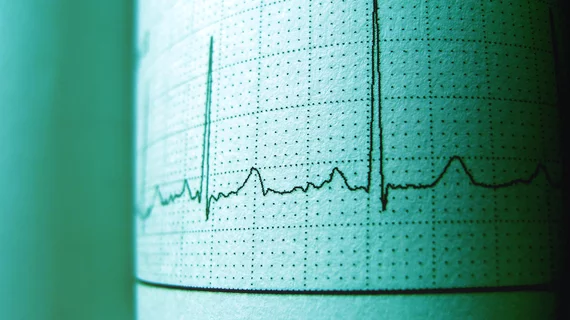FDA clears new suite of ECG evaluation tools
B-Secur, an Irish healthcare technology company funded by Orlando Health Ventures, announced that the U.S. Food and Drug Administration (FDA) has cleared its new suite of algorithms and analytics for evaluating electrocardiogram (ECG) data.
HeartKey Rhythm was designed to assess ECG results and provide heart teams with accurate, efficient data. It runs off the cloud if needed and can communicate with a variety of different existing platforms and devices.
Modern heart teams receive more ECG readings than ever before due to the increased use of wearable devices. This can cause problems for providers already faced with a shortage of trained cardiologists. According to B-Secur, HeartKey Rhythm gives healthcare providers a way to stay ahead in the face of these challenges.
“There is an ever-increasing reliance on ECG data collected outside of a controlled clinical environment,” Adrian Condon, B-Secur’s chief technology officer and co-founder, said in a statement. “Our breakthrough FDA cleared product, HeartKey Rhythm, significantly improves the ECG signal processing and rhythm recognition of ambulatory devices and platforms.”
Alan Foreman, B-Secur’s CEO and co-founder, described this latest approval “a monumental step toward helping providers deliver more timely, efficient and preventive care.”
“One person dies every 33 seconds from cardiovascular disease (CVD) in the United States, and by 2050, the total cost of CVD is expected to triple, reaching $1.851 trillion,” he said. “These figures are frankly alarming and underscore the urgent need for technological solutions that drive efficiencies and enable proactive monitoring.”

